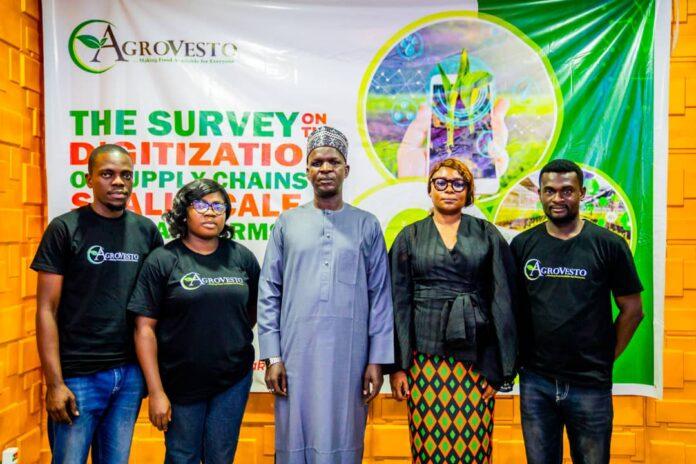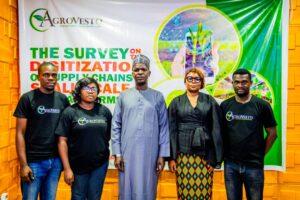
The Director General of the National Information Technology Development Agency (NITDA), Kashifu Inuwa, has spotlighted the game-changing potential of technologies like Artificial Intelligence (AI), the Internet of Things (IoT), and blockchain for Nigerian agriculture.
Represented by Engr. Salisu Kaka, Director of Digital Economy Department, Inuwa emphasized this during a keynote at the launch of the Digitisation of Supply-Chain in Small-Scale Nigerian Farms Project in Abuja.
The event, organized by Agritech startup AGROVESTO, NITDA, the Office for Nigeria Digital Innovation (ONDI), Japan International Cooperation Agency (JICA), and the Federal Ministry of Agriculture and Food Security (FMAFS), the event aimed to empower smallholder farmers, boost their income, and expand market opportunities, fostering agricultural prosperity in Nigeria.
Inuwa noted that agriculture, employing many Nigerians, contributed 25.18% to the nation’s GDP in 2023.
Digitizing supply chains for small-scale farms could significantly enhance food security, addressing challenges such as limited technology access, high production costs, and poor market access.

He highlighted that AI can streamline time-consuming tasks through machine learning, IoT can monitor crops and provide real-time data, and blockchain can ensure supply chain transparency, enhancing consumer trust and disease management.
NITDA supports agricultural growth through initiatives like the National Adopted Village for Smart Agriculture (NAVSA), engaging 965 farmers with technology.
The Strategic Roadmap and Action Plan, 2024 – 2027 (SRAP 2.0), focuses on promoting tech in agriculture to boost GDP, diversify the economy, and create jobs, aligning with President Bola Ahmed Tinubu’s Renewed Hope Agenda.
Drawing on global examples, Inuwa cited that Kenya’s agriculture contributes 33% to its GDP, with JICA’s Small Horticulture Empowerment & Promotion (SHEP) Approach doubling the income of 2,500 farmers between 2007 and 2009.
AGROVESTOR’s Co-founder/CEO Bayo Adewoye revealed that most farmers earn between 20,000 and 100,000 naira monthly during sales season.
The project aims to connect farmers to broader markets through digital tools, boosting their income and bargaining power, reducing post-harvest losses, and enhancing digital literacy.
The next steps include designing and integrating a digital market platform, onboarding cooperatives and SHEP graduates, and conducting monitoring and evaluation activities with JICA and ONDI.

























